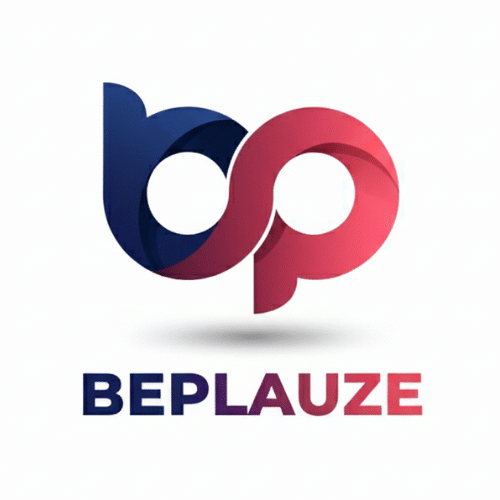Did you know that a staggering 70% of leaders report feeling unprepared for their roles when they step into them? It’s a quiet crisis in boardrooms worldwide. In an era defined by rapid change, the question isn’t just about finding leaders; it’s about forging them with the resilience and strategic clarity to navigate constant uncertainty. This is where the focused, transformative power of Pedrovazpaulo executive coaching enters the picture, offering a bespoke pathway from high-potential to high-performance.
Many providers promise leadership growth, but the market-facing, structured approach of a boutique firm like PedrovazPaulo moves beyond generic advice. It’s not about temporary fixes; it’s about engineering a fundamental shift in how a leader operates, thinks, and inspires. Let’s explore how this tailored partnership can be the catalyst for not just meeting your goals, but redefining them.
Before we dive into the specifics, let’s clarify the playing field. Executive coaching isn’t therapy, nor is it a mentorship. Think of it less like a lecture and more like a dedicated personal trainer for your leadership muscles. A great coach doesn’t run the race for you; they refine your form, pace your strategy, and push you to break through your own perceived limits.
Boutique coaching, in particular, offers a distinct advantage over larger, more impersonal firms.
- Highly Personalized Attention: You’re not a number in a system. The engagement is tailored to your unique challenges, personality, and organizational context.
- Deep Market Understanding: As a “market-facing” provider, PedrovazPaulo’s programs are designed with the real-world pressures of today’s business landscape in mind.
- Agility and Flexibility: Without the bureaucracy of a massive corporation, a boutique firm can adapt its methods and focus as your needs evolve.
This tailored approach ensures that the conversation is always relevant, strategic, and directly tied to your impact on the business.
So, how does Pedrovazpaulo executive coaching translate theory into tangible results? The brand’s claims point to a structured, programmatic approach. While specific accreditations should be verified directly for your peace of mind, the consistent presentation of their methodology across platforms suggests a clear framework for development.
A typical engagement might be built around a cycle of assessment, challenge, and support:
- Discovery and Assessment: This initial phase is all about creating a clear baseline. Through in-depth interviews, 360-degree feedback, and sometimes psychometric tools, a comprehensive picture of your leadership style, strengths, and blind spots is developed.
- Goal Sculpting: Here, vague aspirations like “be a better leader” are chiseled into sharp, strategic objectives. For example, “Improve team delegation to free up 20% of my time for strategic initiatives” or “Enhance executive presence to more effectively influence board-level decisions.”
- Actionable Strategy Sessions: This is the core of the coaching partnership. Sessions are practical workshops where real-world business challenges are broken down. You might role-play a difficult conversation, map out a stakeholder influence plan for a new project, or deconstruct a recent decision to identify cognitive biases.
- Accountability and Integration: Growth happens between sessions. Your coach acts as an accountability partner, ensuring insights from your conversations are integrated into your daily actions, turning new behaviors into consistent habits.
A Snapshot of a Structured Coaching Journey
| Phase | Key Activities | Outcome |
|---|---|---|
| Foundation | In-depth assessments, stakeholder interviews, goal alignment. | A crystal-clear leadership development plan. |
| Execution | Bi-weekly strategic sessions, real-play exercises, email support. | Practical skills applied to immediate work challenges. |
| Mastery | Habit consolidation, measuring impact against KPIs, planning for sustainability. | Lasting behavioral change and measurable business results. |
Investing in this level of development isn’t a cost; it’s a strategic move with a measurable ROI. The benefits ripple out, impacting not just the leader but their entire team and organization.
- Sharper Strategic Decision-Making: Coaches act as a sounding board, helping you challenge your own assumptions. Think of it as installing a “cognitive guardrail” that prevents costly knee-jerk reactions and encourages data-informed, strategic choices. A leader at a tech scale-up, for instance, used their PedrovazPaulo sessions to navigate a pivotal product pivot, avoiding a potential market misstep.
- Enhanced Communication and Influence: It’s one thing to have a vision; it’s another to communicate it in a way that mobilizes everyone from the C-suite to the front lines. Coaching hones your ability to articulate complex ideas with clarity and inspire action, turning directives into shared missions.
- Accelerated Conflict Resolution: Dysfunctional team dynamics can sink any project. A coach provides the tools to navigate conflict constructively, transforming tense situations into opportunities for innovation and stronger team cohesion.
- Sustainable Performance Under Pressure: Executive burnout is a real threat. Coaching builds resilience and provides frameworks for managing energy, not just time. This ensures you can perform at your peak without sacrificing your well-being—a crucial skill for long-term success.
Boutique coaching is powerful, but it’s not a magic wand. It requires a significant commitment of time, energy, and vulnerability. It’s best suited for leaders at an inflection point. Are you:
- Transitioning into a new, more demanding role?
- Struggling to get your team or key initiatives to the next level?
- Feeling isolated in your decision-making and lacking a confidential sounding board?
- Technically brilliant but needing to enhance your “soft skill” impact?
If these scenarios resonate, a structured program could be your breakthrough. However, it’s crucial to do your due diligence. Given that independent verification of credentials may be limited, your first conversation with a provider like PedrovazPaulo should include direct questions about the specific coach’s certifications (e.g., ICF), experience in your industry, and concrete examples of how they’ve helped similar leaders.
Ready to explore what this could mean for your career? Don’t just jump in. Approach it with the same strategy you’d apply to any major business investment.
- Clarify Your “Why”: Write down the single biggest leadership challenge you’re facing right now. Be brutally honest. This becomes your North Star.
- Research with Precision: Look beyond the marketing. Scour LinkedIn for testimonials and, most importantly, schedule introductory calls. The “fit” with your coach is paramount.
- Define Success in Advance: In your initial discussions, ask, “What would a successful outcome look like for us in 6 months?” Push for specific, observable metrics.
- Commit Fully: Once you begin, lean in. Do the prep work, be open in sessions, and apply the lessons immediately. The ROI is directly proportional to your engagement.
- Measure and Reflect: Periodically, step back and assess. Are you seeing the changes you wanted? Is your team responding differently? Use this data to adjust your focus with your coach.
The journey to exceptional leadership is ongoing. It demands introspection, courage, and the right guidance. A focused, structured coaching engagement can be the most valuable investment you make in yourself and your organization’s future.
You May Also Read: Pedro Paulo Coaching: Leadership Transformation Guide
How is Pedrovazpaulo executive coaching different from internal mentorship?
Internal mentorship is invaluable for navigating company culture and politics. However, executive coaching provides a strictly confidential, unbiased external perspective focused entirely on your personal development, free from any internal agendas or power dynamics.
What is the typical duration of a coaching program?
While it varies, meaningful behavioral change takes time. Most structured programs, including those from boutique providers, last a minimum of six months, with many engagements extending to a year or more to ensure new habits are deeply ingrained.
Are the results of executive coaching measurable?
Absolutely. While some benefits are qualitative (e.g., improved confidence), a good coaching engagement will tie back to quantitative KPIs you care about, such as improved employee retention in your department, higher project success rates, increased team engagement scores, or revenue growth.
I’m a senior leader. Isn’t coaching for people who are underperforming?
This is a common myth. Today, the vast majority of coaching is for high-performers—the “A-players” who want to become “A+ players.” It’s about unlocking potential, not fixing problems, and is seen as a strategic perk for top talent.
How confidential is the process?
Total confidentiality is the non-negotiable foundation of any legitimate executive coaching relationship. Your conversations are protected space. The only information typically shared with your organization is your participation in the program and, with your permission, progress toward your predefined goals.
What if my coach doesn’t understand my specific industry?
A great coach is a expert in leadership and human behavior, not necessarily in your specific product. Often, this is an advantage, as they bring fresh, unbiased perspectives free from industry dogma. However, they should demonstrate a keen ability to quickly grasp the nuances of your business context.
How do I justify the cost to my organization?
Frame it as a strategic investment, not an expense. Build a business case that links your development goals to key organizational objectives, such as driving innovation, improving cross-functional collaboration, or increasing leadership bench strength for future growth.

